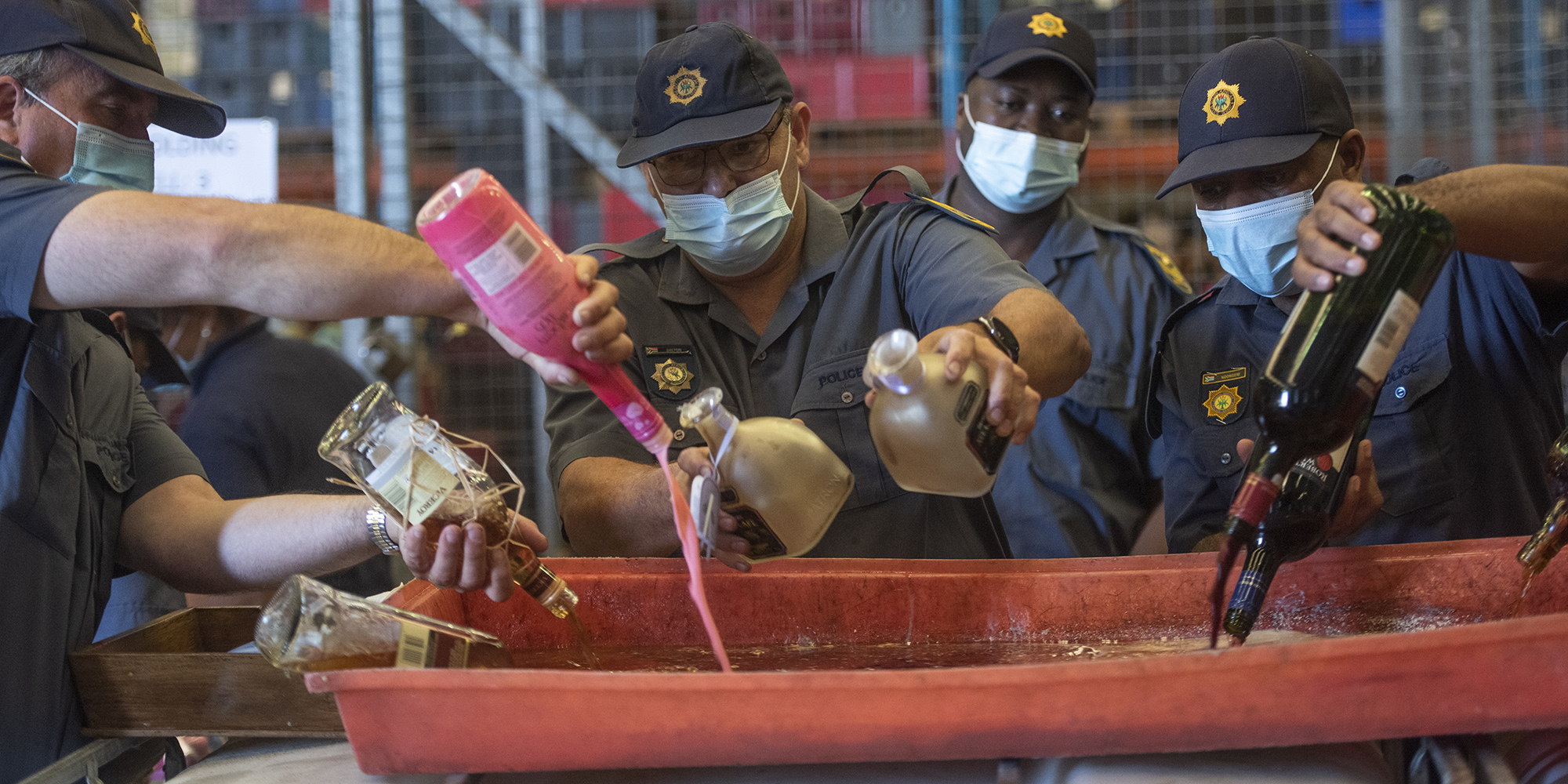The 7th Global Alcohol Policy Conference (GAPC) takes place in Cape Town this week.
It is hosted by the Southern African Alcohol Policy Alliance, the South African Medical Research Council, the national Department of Social Development and the Global Alcohol Policy Alliance (Gapa).
Gapa is a grouping of alcohol policy activist organisations from around the world, with more than 500 representatives expected to attend the GAPC.
The conference, which runs from 24 to 26 October, is an opportunity to assess progress in the adoption of alcohol harm reduction policies in countries across the globe; share experiences and success stories, and exchange ideas on how to further the quest for an alcohol-safer world.
In March 2020, just before the Covid crisis, I attended the 6th Global Alcohol Policy Conference in Dublin, Ireland. I was, at the time, the director of the Southern African Alcohol Policy Alliance in SA (Saapa SA), a member of the Saapa regional body which is, in turn, an affiliate of Gapa.
Significantly, the hosts of that conference were Gapa and the Department of Health in the Republic of Ireland. The opening address was given by Ireland’s then health minister, Simon Harris.
He could say, with satisfaction, that the invitation to host “was particularly timely as it arrived soon after the enactment of our Public Health (Alcohol) Act in 2018, which I had the privilege as Minister for Health to bring through our Parliament”.
The objectives of that Act were:
- To regulate the supply and price of alcohol in order to minimise the possibility and incidence of alcohol-related harm.
- To delay the initiation of alcohol consumption by children and young people.
- To reduce the harms caused by the misuse of alcohol.
- To reduce alcohol consumption to 9.1 litres of pure alcohol per person per annum by 2020.
The means of achieving those objectives included restricting the advertising and promotion of alcohol, especially to children; changes in labelling on alcoholic beverage containers, and minimum unit pricing.
SA efforts halted
Regrettably, the situation in South Africa, as we approach the 7th conference, is very different.
The event is co-sponsored by the Department of Social Development and the Department of Health, but, while the Minister of Social Development, Lindiwe Zulu, will address the conference, it appears that neither the Minister of Health nor the Minister of Trade, Industry and Competition will attend.
Zulu’s department is responsible for the Central Drug Authority which has the mandate to produce the National Drug Master Plan. However, Social Development doesn’t draft national liquor policy – that’s the job of Trade, Industry and Competition.
And, unlike Ireland in 2020, South Africa will not be able to report to the conference any significant progress in adopting measures to reduce the levels of alcohol-related harm in this country, so Zulu will find it hard to deliver a positive message to delegates.
The truth of the matter is that, three years ago, we should have been able to join Ireland in celebrating our own adoption of alcohol harm reduction legislation, and I said as much to the conference plenary at the gathering.
This is because, from 2010 to 2017, our government demonstrated a commendable commitment to working for the adoption of policies and legislation that would make South Africa an alcohol-safer country.
This was manifest from:
- South Africa’s endorsement of the 2010 World Health Organization (WHO) Global Strategy to reduce the harmful use of alcohol.
- The Establishment of an Inter-Ministerial Committee on Substance Abuse which recognised the need for a whole-of-government approach to dealing with the challenges of alcohol and other drugs.
- A Cabinet resolution in November 2010 called on all three spheres of government not to enter into any partnerships or arrangements with the liquor industry.
- The adoption of 16 alcohol harm reduction resolutions at the Second Biennial Anti-Substance Abuse Summit in March 2011.
- Cabinet approval of the release for public comment of the Control of Marketing of Alcoholic Beverages Bill of 2013, which would have banned all alcohol advertising and sponsorships.
- The Road Traffic Amendment Bill of 2015 which proposed a blood alcohol concentration of zero as a means of reducing alcohol-related road traffic incidents.
- The endorsement by Cabinet of the National Liquor Policy of 2016 and approval of the release for public comment of the Liquor Amendment Bill of 2016 which, once enacted, would give effect to recommendations in the new policy.
- Adoption of the 2017 amendments to the 2007 regulations on labelling which would have seen an increase in the size and frequency of health warnings on alcoholic beverage containers.
However, the country’s steady, albeit contested, progress towards more effective alcohol harm reduction measures came to a grinding halt in 2017, with no sign since of any desire by the government to reactivate its efforts.
Rob Davies, former Minister of Trade and Industry, who shepherded the drafting of the 2016 Liquor Policy and Liquor Amendment Bill, says coyly in his 2021 book, Towards a New Deal: “In the end, the Liquor Bill was not deemed urgent at the end of the fifth term. It remains to be seen how this important issue will be dealt with in the sixth Parliament.”
However, I have it on good authority that the government decided to put a hold on the passing of the Liquor Amendment Bill because it was entering a period of elections and was nervous about the impact of the proposed legislation on its constituency. And the answer to Davies’ musing about how “this important issue” would be dealt with: not at all.
In 2019, after the national and provincial elections, Ebrahim Patel was appointed Minister of Trade, Industry and Competition. I am unable to find a single public comment by him on liquor policy during his tenure to date.
The new health minister has similarly shown little inclination to get involved in liquor policy issues.
The new social development minister seems unconcerned that the 2010 Cabinet resolution brokered by her predecessor, which called on government departments not to partner with the liquor industry, is being ignored by all three spheres of government.
The Inter-Ministerial Committee on Substance Abuse no longer meets.
And there has been no follow-through of the 2011 Substance Abuse Summit resolutions.
The Control of Marketing of Alcoholic Beverages Bill was stillborn because of opposition from within the Cabinet and from the liquor, media and advertising industries.
Opposition to the proposal in the Road Traffic Amendment Bill to adopt a zero blood-alcohol level has led to it being removed.
The Liquor Policy of 2016 hasn’t been implemented, with the Liquor Amendment Bill of 2016 – that would have given effect to the policy – still on hold and likely never to be passed.
Even the Amendment to Regulations Relating to Health Messages on Container Labels of Alcoholic Beverages of 2017 was repealed in 2020 with no real explanation.
Focus shifts to the economy
The sustained about-turn by the government is all the more surprising in light of what occurred during the Covid pandemic.
South Africa was one of a handful of countries that saw fit to suspend completely – four times and for extended periods – the transportation and sale of alcohol. This was done to free up beds in hospitals for Covid patients and to prevent the spread of the virus.
Politicians (including the President), health professionals and members of the public repeatedly highlighted the lessons learnt during the pandemic about the country’s challenges with alcohol. There were multiple calls for more effective legislation to reduce alcohol-related harm.
Those voices have fallen silent.
Concerns for public health and safety have been replaced by a preoccupation with getting the economy going again, and an embracing by the government of commitments by the liquor industry to make significant new investments that will create jobs and contribute to the country’s GDP.
Suddenly, it seems, alcohol harm is no longer a “national crisis”.
There is one light in this very dark tunnel.
The proposed Basic Education Laws Amendment Bill included misguided clauses which would allow alcohol to be served and sold on school premises and at school functions (albeit to adults only and not schoolgoers) for fund-raising purposes.
During parliamentary portfolio committee hearings in all nine provinces, the public delivered a resounding rejection of the proposed clauses, resulting in their removal from the Bill.
Perhaps the message here is that the adoption of alcohol harm reduction measures in the country cannot be left to the whim of elected officials and public servants.
Members of civil society who are concerned about public health, safety and the wellbeing of their communities can and must stand up and claim their right to have a meaningful say over where, when and how alcohol is sold and consumed in their neighbourhoods.
They can and must demand that government departments and provincial liquor boards put people before profit and create an enabling environment in which members of the public, as directly affected parties, can exercise their democratic right to contribute actively and effectively to the creation of an alcohol-safer society. DM
Maurice Smithers is an alcohol harm reduction activist.





 Confiscated alcohol at 35 Squadron Belhar before the annual safer festive season inspection tour on 20 December 2021 in Cape Town. (Photo: Gallo Images / Brenton Geach)
Confiscated alcohol at 35 Squadron Belhar before the annual safer festive season inspection tour on 20 December 2021 in Cape Town. (Photo: Gallo Images / Brenton Geach)